Your Basket
Your basket is empty.
Decaffeinated West Country Original loose tea is our very own version of decaf English breakfast tea which is an excellent choice for those who want to enjoy a cup of tea without the caffeine. Made from high-quality tea leaves, Miles’ decaf tea - which is available in decaf tea bags or loose - offers a rich and robust flavour that is comparable to its caffeinated counterpart. The decaffeination process involves removing most of the caffeine from the tea leaves while preserving the natural flavours and aroma. This ensures that you can savour a comforting cup of tea without any jitters or sleep disturbances. Whether you prefer decaf loose leaf tea or decaf tea bags, we have both for you to choose from. So, sit back, relax, and enjoy a soothing cup of the best decaf tea around!
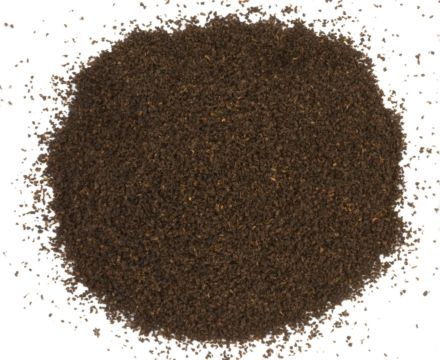 Decaffeinated Loose Tea
10g - Sample Pack
£0.50 each
Decaffeinated Loose Tea
10g - Sample Pack
£0.50 each
Try a little, before you buy a lot!

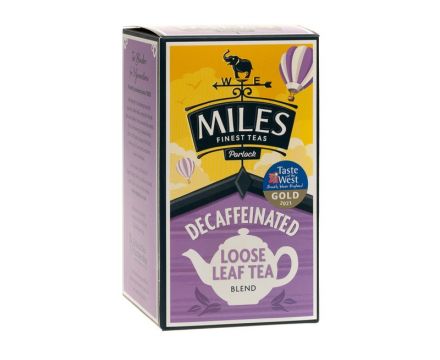 250g Decaffeinated Loose Leaf Tea
£5.95 each
250g Decaffeinated Loose Leaf Tea
£5.95 each
A delicious everyday decaffeinated tea, containing less than 0.1% caffeine.

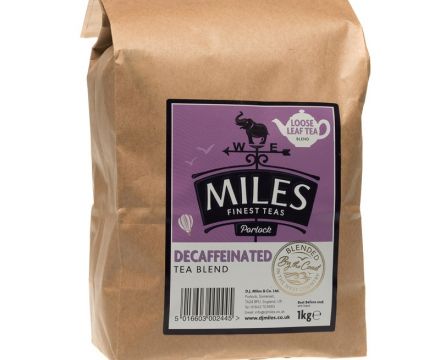 1kg Decaffeinated Loose Leaf Tea
£17.45 each
1kg Decaffeinated Loose Leaf Tea
£17.45 each
A delicious everyday decaffeinated tea, containing less than 0.1% caffeine.

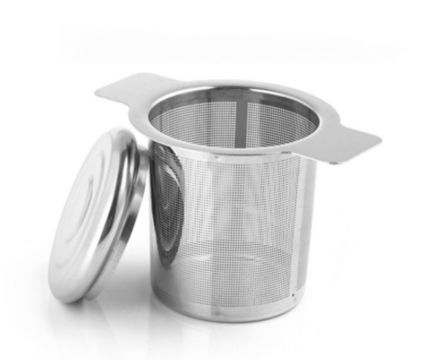 Double Handle Tea Infuser with Lid
£4.99 each
Double Handle Tea Infuser with Lid
£4.99 each
An essential item for any tea connoisseur, this tea strainer will...

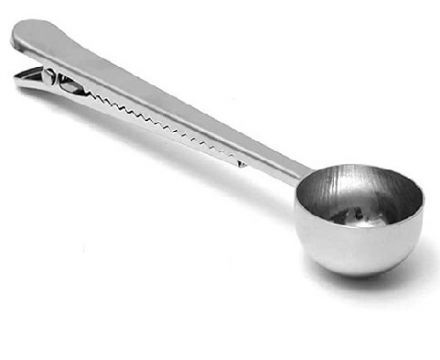 Tea & Coffee Measuring Scoop
£2.50 each
Tea & Coffee Measuring Scoop
£2.50 each
Measure out your ground coffee, coffee beans or loose leaf tea with...

Decaf tea is a popular choice for those looking to reduce their caffeine intake while still enjoying the taste of tea. Although decaf tea does contain some residual caffeine, the amount is significantly lower compared to regular tea. On average, an 8-ounce cup of decaf tea contains about 2 to 5 milligrams of caffeine, whereas a regular cup of tea can contain anywhere from 30 to 70 milligrams of caffeine. The decaffeination process involves removing most of the caffeine from the tea leaves, resulting in a beverage that is much lower in caffeine content. It's important to note that the exact caffeine content can vary depending on factors such as the type of tea and the specific decaffeination process used by the manufacturer. Here at Miles, our decaf tea can certify that the caffeine content is less than or equal to 0.10%.
Decaf tea is a healthy alternative to regular tea for individuals looking to reduce their caffeine intake. Decaffeinated teas undergo a process where the caffeine content is removed, resulting in lower levels of caffeine while maintaining the beneficial antioxidants and other compounds found in tea. These antioxidants can help reduce inflammation, improve heart health, and boost the immune system. However, it is important to note that decaf teas may still contain trace amounts of caffeine, so those who are highly sensitive to caffeine should consume with caution. Overall, decaf tea can be a good option for individuals looking to enjoy the health benefits of tea without the stimulating effects of caffeine.
To make decaf tea, start by boiling water in a kettle or pot. Once the water reaches a rolling boil, remove it from heat and allow it to cool slightly for about 1-2 minutes. Next, place your loose decaf tea leaves into a teapot or mug. Pour the hot water over the leaves, ensuring that they are fully submerged in the water. Cover the teapot or mug with a lid or saucer to steep for the recommended time (usually 3-5 minutes). After steeping, strain out the leaves and enjoy your freshly brewed decaf tea. You can add sweeteners, milk, lemon, or any other desired flavourings to customize your decaf tea to your liking.
Your basket is empty.